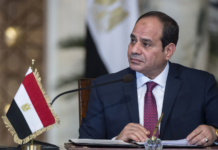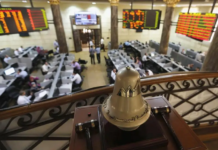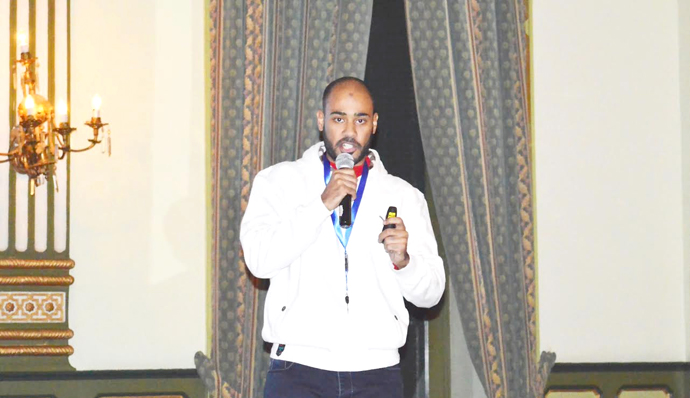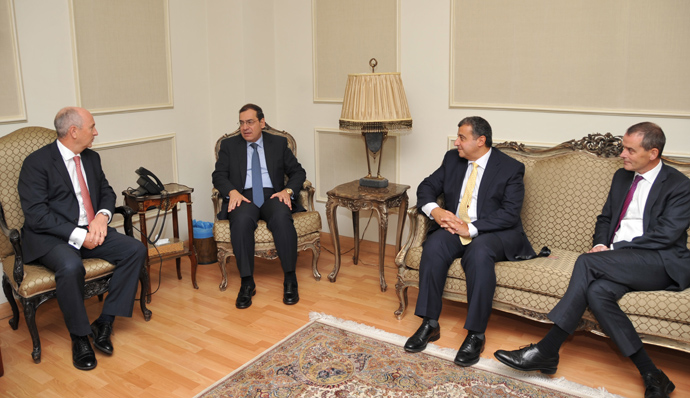Egypt similar to numerous developing countries is facing tremendous challenges, most critical of which is combating and defeating terrorism. Since President Abdel Fattah El-Sisi took over, Egypt achieved leaps in identifying these various challenges, and acted upon addressing them, thus managed to achieve progress in their regard.
El-Sisi lead the fight against terrorism and Egypt is on the route to conquering terrorism in The Sinai peninsula. Egypt cornered the terrorists in the desert outskirts of North Eastern Sinai, strangling their funding sources. Egyptians geared up to back their army forces and are exhibiting through various channels their support, and determination to proceed with such a fight till the end in order to eradicate terrorists and their ideology from the whole of Egypt.
On the other hand, Egypt’s Sisi tackled one of the most serious challenges; fuel and energy subsidies. The budget allocated to fuel Maintained a huge annual subsidy of $19 bn for fuel. This along with dues that eventually lead international energy companies to halt their operations, a series of black outs due to lack of energy resources, and a lag in the maintenance needed for the smooth operation of Electricity stations. El-Sisi moved swiftly in this arena and took bold steps in this regard, ones that lead to reducing the due payments to international energy companies for oil and gas, thus moving them to revive their operations in Egypt. Actually, several gas companies explorations culminated in new oil discoveries- including Zohr field, the largest in the Mediterranean region; which started production at the end of 2017. While, other fields were brought on stream including BP’s Atoll and West Nile Delta. As a matter of fact Egypt is expected to be self-sufficient in gas by the end of this year and aims to be a regional energy hub.
Tarek Tawfik , American Chamber of Commerce President in Egypt told reporters in Washington ” Everyone here praised Egypt’s economic reform programme and recognised the effort needed to make such difficult and bold decisions,” this as the chamber’s one-week door-knocking mission to the US capital came to an end.
As for one of the most overdue challenges; Infrastructure, Sisi decided to wait no more , and headed on a plan to address it. The plan covered expanding the areas available for Egyptians to habitate – it is worth noting that Egyptians reside on 6% of Egypt’s land. El-Sisi launched a number of mega-projects; which included dredging a new branch of the Suez Canal, new roads network and all the accompanying needed infrastructure. The plan included a $45 billion new administrative capital east of Cairo, a new city in Alamein and a number of other cities all over Egypt.
These badly needed expansions although regarded as long term projects, are already seeing the light, supported by the huge interest of buyers.
Moving to another major challenge facing the current government we find inflation. The soaring inflation rate had to be controlled. An ambitious financial & banking plan managed to have inflation drop In February 2018, to 14.4 percent. Merza Hassan, executive director for the Arab region at the World Bank, described Egypt’s current economic reform programme as a model the bank intends to introduce to other countries.
Parallel to the above the government proceeded on the path to attract foreign and local investors. Thus issued a new investment law to make the investment environment in Egypt investor friendly. The law in addition to upgrading the country’s infrastructure seek to encourage the role of the private sector, motivate small and medium-sized enterprises, stimulate creativity, innovation, entrepreneurship, and create an environment that helps small businesses to grow.
On the other hand, the Government ‘s new “ambitious,” budget aims to activate the stock market, through providing funds necessary for establishing projects, restructuring the state’s companies, and saving direct and indirect revenues for the state’s budget.
“I think we should see growth continuing to escalate,” said Mohamed Abu Basha, an economist with EFG Hermes. “Tourism has space to recover, consumption and investment should continue to recover over the next few years.”
Mahmoud Mohieddin, first vice president of the World Bank, said Egypt needs to increase its growth rate to seven per cent annually to improve the population’s overall standard of living. Increasing the savings rate is important to stimulate investment, a prerequisite for economic growth, he said, adding that the development experiences of China and Vietnam had shown the importance of financing investment through domestic savings.
Mohieddin also called for the establishment of a sovereign investment fund in Egypt to manage the surpluses of profit-making companies, pointing to the experiences of Norway, Ireland and Malaysia in this field.
On the overall , I do believe Egypt is on the right track, there’s still a lot needed and no one can deny that this is a tough phase in Egypt’s history; economically and otherwise, but, we most certainly took the first step, and there is no looking back.















